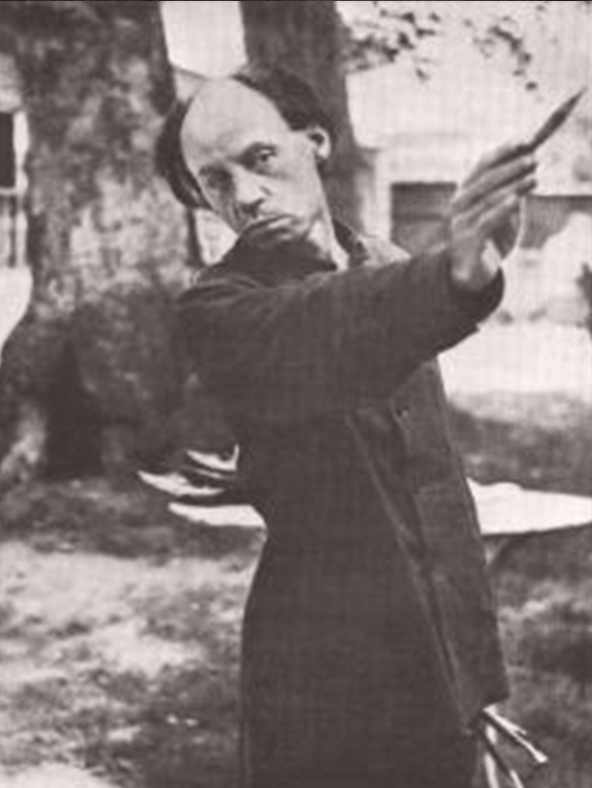Paizs Goebel Jenő

Budapest, 1896 – Budapest, 1944
The Life
The outside world saw him as a deaf. As a stutter. As a limp. Nonetheless, his inner world was one of dreams.
The Art
In his paintings, he created a completely separate world, dreamlike and surreal in particular.
Defects become qualities
Jenő Goebel was born in Budapest, in 1896.
As a child, he contracted scarlet fever and his hearing was impaired. He also developed a limp, which made walking without a cane very difficult.
He was the apprentice of Tivadar Zemplényi and István Réti, when he studied at the Higher School of Fine Arts in Budapest (1916-1924). “Peasant Porch”, the painting from our collection, dates from that time.
During his student days, he participated in exhibitions in Műcsarnok, the Ernst Museum, and also in National Salons. After his graduation, in 1924, followed a year and a half of living in Paris, because of a scholarship he won. For a short time, he worked at Barbizon, where he shared a workshop with the painter Albert Varga. In July 1925 Goebel exhibited 50 works at the Galerie du Zodiaque in Paris: self-portraits, Parisian scenes, and nude studies.
Sticking to his models
He returned to Baia Mare in 1926, where he worked and painted mainly (self) portraits, landscapes, and nudes. He did not always have the money to work with a live model and in a letter, he wrote: “I painted things which didn't require money. I don't get paid, so I paint myself, and sometimes I paint landscapes. [Dávid] Jándi makes compositions because it doesn't cost him money. He paints from his imagination, but I can't do that, I stick to the models because… I don't like to paint by fantasy.”
Jenő Goebel also took the name "Paizs", which was originally used as a writer's pseudonym by his journalist brother. The following year, he became a founding member of the Society of Painters of Szentendre. This Society founded, in 1929, the Artists 'colony in Szentendre which served artistic purposes similar to those of the artists' colony in Baia Mare.
In 1931 and 1935 he participated in group exhibitions organized at the Ernst Museum in Budapest. In 1943 he opened a retrospective exhibition hosted by Művészház ("Artist's House") in Budapest.
Frolicking, limping, painting
In 1944, Jenő Paizs Goebel passed away in Budapest, due to a severe brain tumor.
The artist Béla Ónodi, recalled him as follows: “Even today I can see Jenő Paizs Goebel frolicking, limping on the green lawn among the old plane trees. He was deaf and had difficulty speaking, so in his isolation, he created his own completely separate world, and in his painting, his space and proportions lost importance. He painted strange, dreamy things, projecting his own inner, dreamy world on canvas. The influence of the known "isms" in Paris also contributed to this, and once rejected Impressionism as an outdated form of expression. He was very enthusiastic about Csontváry and the Frenchman Rousseau.”


